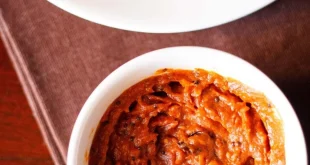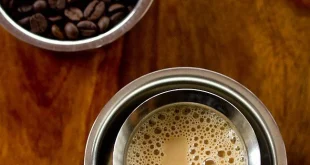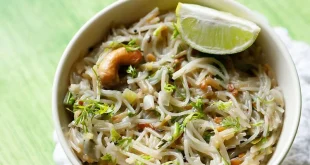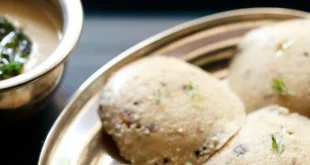Is Tamil food solid? Or then again is it not? Or on the other hand, have we recently been informed that it isn’t?
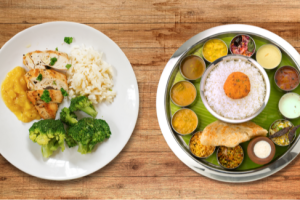
In the soul of Tamil legacy month, we should investigate the discernments that exist around Tamil food (and South Asian food overall) and the significant job they play in solid living. South Asian food has for some time been well known for its supernatural fragrances and flavor, yet from a wellbeing point, it has not been given the credit it is expected. In western nations, it seems OK that thoughts around smart dieting and diets spin around western food.
For migrants, in any case, this normally leaves out the vast majority of cooking styles that characterize numerous non-western societies; eats less which have saved many civilizations fit as a fiddle for quite a long time. It’s apparently time for this to change. Returning to and widening the meaning of what comprises quality food can go far in making sound weight control plans more available.
As a deep rooted competitor, the considerable rundown of diets I’ve been on for various games, for building and cutting, or essentially for “well being,” practically ruled out food varieties I really delighted in. I made heaps of heated chicken bosom, steamed broccoli and fried eggs with salt and pepper; zest, flavor or curries were never suggested or educated as part concerning a solid eating routine. In all honesty, most would agree my primary care physicians, partners and mentors had probably never known about lentils, turmeric or curry.
In any case, shockingly, I’d likewise had Tamil specialists prompt me not to eat “pungent” or “slick Tamil food” and advise me to take a gander at the Canada Food Guide (which never had any exhortation on socially pertinent food options). As I proceeded with the good dieting venture into college, the strain to remove home-prepared feasts like chicken and fish curries was somewhat disheartening, and began having less rhyme or reason. It was basically impossible that this food could be unfortunate, correct?
The basic response is no. Tamil food contains an overflow of solid fixings, vegetables and flavors that have bunches of advantages. Regardless of whether an eating regimen is unfortunate at last comes down to how it’s ready. Saying all Tamil food is unfortunate is the same than viewing at french fries or burgers as the action for the well being of the western eating regimen in general. Tamil food, and South Asian food all the more comprehensively, incorporates many the two sound and unfortunate dishes, with fixings that can be added or taken out to work on quality.
A fascinating component of this downsize that South Asian food varieties have gotten in the west is that you can frequently see these equivalent food sources we’ve grown up with springing up, particularly in places like Ticktock from wellness/well being powerhouses, as rehashed and repackaged “super foods” and trends that are eminently deprived of their social beginnings.
Turmeric has seen a new rise via virtual entertainment as a cell reinforcement super food; “lentil hotcakes” and lentil “flatbread” recipes are another (what we call thosai/dosa). Veganism, which has establishes in India and the Mediterranean is likewise frequently introduced to us from a perspective of western smart dieting, as opposed to as a particularly non-western way of life that is becoming well known for its medical advantages.
Nothing bad can really be said about calling attention to that these food sources or fixings are sound, or with making your own recipes. Furthermore, it is likewise protected to say that many individuals just don’t have the foggiest idea about the beginnings of all the food they eat; all things considered, we don’t commonly look into the starting points of our recipes. We simply find something we like and give it a shot.
Yet, introducing dosa as a “high-protein hotcake” recipe, instead of essentially an Indian dish that you as of late scholarly of, keeps South Asian food and diets isolated from their starting points. Understanding and regarding the starting points of these dishes is a little yet significant stage towards social appreciation.
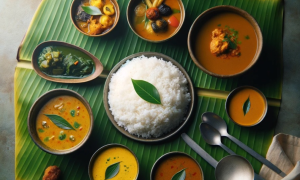
One outcome of the division of South Asian food sources or culture from discussions around wellbeing is that good dieting in this manner turns out to be less available, particularly for more seasoned South Asian ages living in the west. Clinical issues like diabetes, hypertension and elevated cholesterol are normal issues among seniors; tragically, the dietary counsel that is frequently aimed at these people causes the objective of smart dieting to appear to be close to unimaginable.
While a few counsel, such as bringing down salt and oil admission can be sufficiently simple to execute, proposals to remove starches, carbs, oils or flavors eliminate an enormous piece of Tamil food from the menu. Best of luck persuading your grandparent to dispense with long lasting dishes from their day to day everyday practice. Giving South Asian food sources the credit that they particularly merit for their sound properties and making socially fitting and important feast plans can assist with overcoming this issue.
There’s no question there are undesirable parts of South Asian and Tamil food. In any case, the equivalent can be said for each eating regimen. It means quite a bit to feature the unfortunate components, without excusing the whole eating routine.
There is developing advancement in this space as of now; whether it is specialists perceiving the difficulty of putting a 70 year-old brought up Sri Lankan Tamil on a heated chicken and steamed veggies diet, to articles and foodies who perceive the job that ethnic food sources play in wellbeing and prosperity. Widening the meaning of what comprises quality food can go quite far in making great wellbeing something that feels more available.
The festival of Tamil and South Asian food ought not be isolated from the discussion of good food. We ought to keep on recollecting that Tamil food isn’t simply delicious or brimming with rich fragrances. It’s additionally sound.
